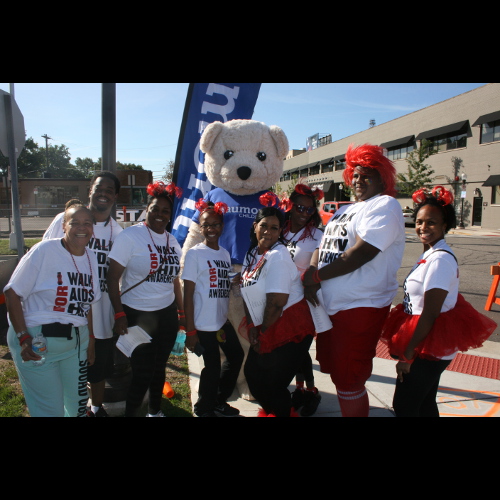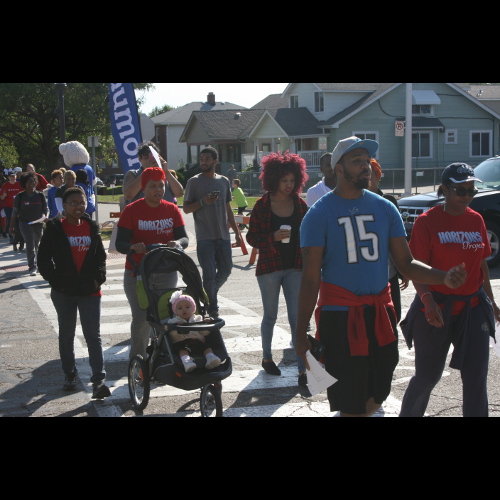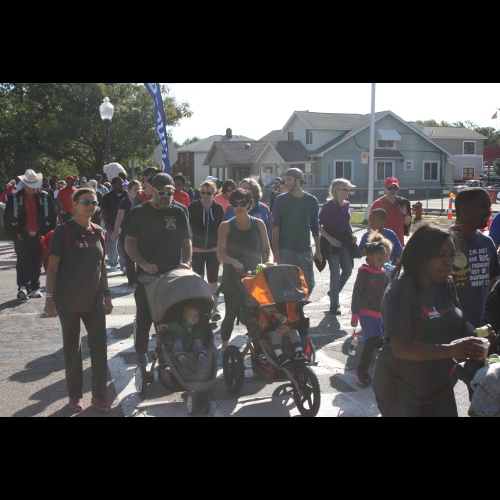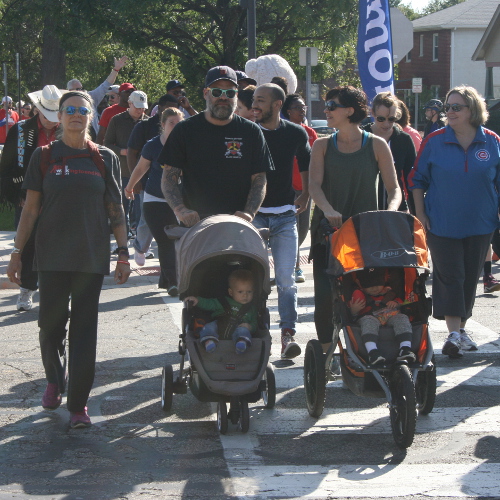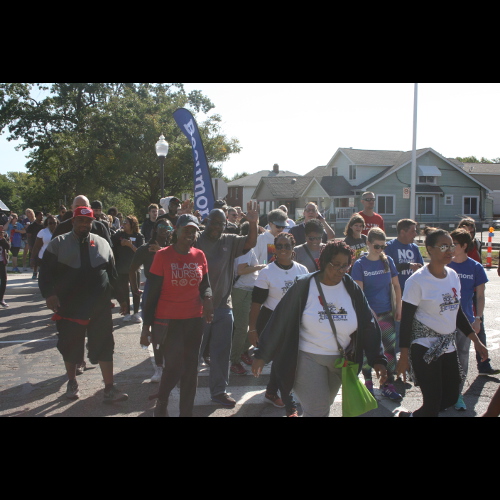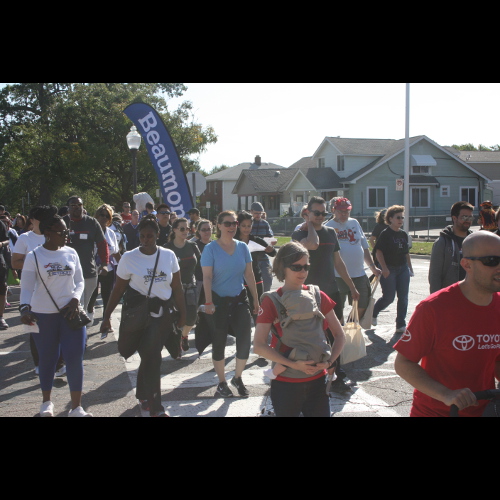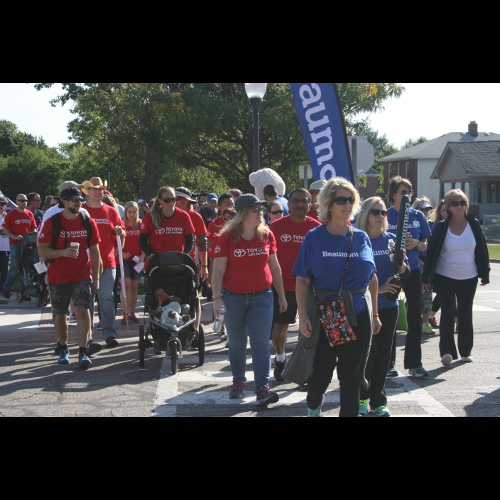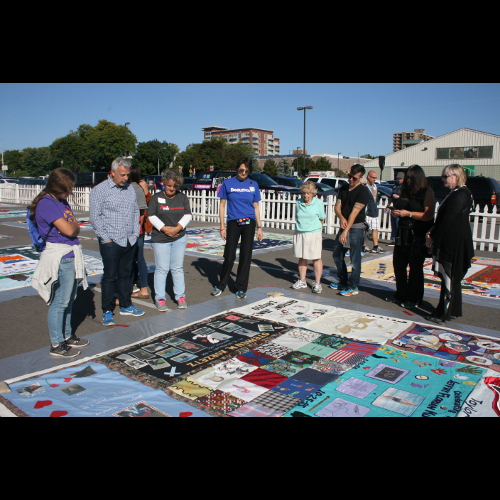ROYAL OAK – There was only the merest hint of fall in the air for this year's AIDS Walk Detroit. The annual event took place Sunday starting and ending at the Royal Oak Farmer's Market. Organizers estimate about 1,200 people took part in the march – a slight increase from last year – and that $125,000 has been raised so far.
"We are really pleased with how well the event turned out," said Teresa Roscoe, AIDS Walk Detroit's board president. "There was a real feeling of community and support among everyone there."
To date, AIDS Walk Detroit has raised over $3.8 million to benefit HIV/AIDS services in Michigan, making it the state's largest grassroots HIV/AIDS fundraiser. But a lot has changed since a group of local merchants and shop keepers in Royal Oak organized the first Walk in 1991.
"We have made progress from the first time we walked until today and we continue to make progress," said Royal Oak Mayor Jim Ellison at the walk's opening ceremony. "And this walk needs to continue to happen until we can eliminate this HIV problem."
Ferndale Mayor Dave Coulter also addressed the crowd.
"Their struggle is over but ours continues," Coulter said, pointing to the panels from the NAMES Memorial Quilt that were displayed on site. "In their name our struggle continues. We have made incredible progress since many of those individuals have passed. But there's much work to be done, right? There is still stigma for people with HIV and AIDS, especially in our laws and policies, and that has to change. It's still too hard for people to get access to their life-saving drugs that they need. And we still don't have a cure.
"So as long as those things are real, we will continue to do what we've always done in this epidemic," Coulter continued. "We will march, we will raise our voices and we will stomp our feet until there is a cure."
The Missing Millennials
But those doing the shouting and the stomping are getting noticeably older. And as more and more Millennials begin to consider HIV a minor manageable disease, their absence at AIDS Walk Detroit has become apparent. They were not around when contracting HIV was considered a death sentence. They didn't witness the LGBT community being ravaged in the 1980s. They've never heard of AZT. Instead, they're coming of age in the era of drug cocktails and PrEP.
"I think younger people don't have some of the understanding and connection with HIV as people who are older and lived through the history and lost people," said Roscoe. "Our challenge is to engage those younger people. We're all still working on that in this field, trying to engage younger people. We're still trying to fight stigma and make them aware that this is still something to pay attention to."
Diana Dunbar, who walked this year for the fifth time, agreed that stigma is still a problem.
"The stigma around HIV is still high," Dunbar said. "That's what pulls a lot of the youth away from it. … A lot of the youth don't come out because they don't want to be judged. And a lot of them don't come out because they're not educated."
Stephen Sullivan is 25. Unlike many people his age, he has been directly affected by the epidemic having lost an uncle. Still, he realizes not everyone his age has that connection and that it's a challenge to get more young people to come out and walk.
"I think we have to make it relevant to them and their lives," Sullivan said. "Some people think it's just kind of going away, yet we still have 50,000 new infections each year. And it's the younger community accounting for most of the new infections."
Roscoe made the same point.
"When we look at the rates of infection now, the groups that are most impacted are young MSMs (men who have sex with men) of color. How do we reach those individuals?" Roscoe asked. "I think we have groups that are doing a good job engaging them, but we need to do more."
Darius Baty said he walked not because he had lost someone to AIDS, but because he knows someone who is living with HIV.
"I have a friend who is celebrating seven years of surviving with the illness," he said.
Baty suggested the solution to the missing Millennials problem is education.
"They don't understand back in the '80s how severe the illness was, how we lost a whole community of creative people," said Baty. "And I don't feel there are a lot of people that are teaching them that. If you look at the organizations we have now, they're pushing safer sex and passing out condoms and lube. But there are not a lot of organizations passing out history. I think if they knew more about it and organizations met them on a level that they could connect with, they'd come out."

